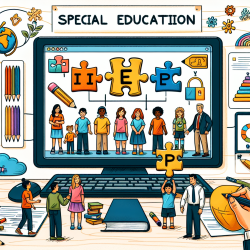Empowering Women Through Soccer: A Game-Changer in Rural Kenya
In the heart of rural Kenya, a seemingly simple initiative is making waves in the fight against intimate partner violence (IPV). The Nikumbuke Project, a health and literacy program, has introduced an all-women's soccer league that is not only fostering community spirit but also significantly reducing instances of IPV among its participants. This blog explores the findings of a study titled "Exploring the Relationship Between Participation in an Adult-women’s Soccer League and Intimate Partner Violence in Rural Kenya" and how practitioners can leverage these insights to improve their interventions.
Study Highlights: Soccer as a Tool for Change
The study conducted by researchers from institutions including Rutgers University and Columbia School of Social Work, examined the impact of participation in a women's soccer league on IPV rates among women in Kwale County, Kenya. The results were promising: women who participated in the soccer league had 59% lower odds of reporting physical IPV and 43% lower odds of reporting any form of IPV in the past year compared to non-participants.
Understanding the Impact
Why does soccer make such a difference? The study suggests several pathways:
- Community Engagement: The soccer league fosters a sense of community and support among women, which can be empowering and protective against IPV.
- Changing Norms: Participation in sports challenges traditional gender roles, promoting more equitable norms that discourage violence.
- Increased Self-Esteem: Engaging in sports can boost self-esteem and confidence, which are crucial in resisting and reporting violence.
Implications for Practitioners
For practitioners looking to implement similar interventions, the study offers valuable insights:
- Community-Based Approach: Engage local communities in the design and implementation of sports programs to ensure cultural relevance and buy-in.
- Focus on Gender Norms: Incorporate educational components that address and challenge harmful gender norms.
- Research and Adaptation: Conduct further research to understand the specific mechanisms through which sports reduce IPV and adapt programs accordingly.
Call to Action
While the study highlights the potential of sports as a tool for IPV prevention, it also calls for more research to explore the causal relationships and broader applicability of these findings. Practitioners are encouraged to consider sports as a viable intervention strategy and to contribute to the growing body of research in this area.
To read the original research paper, please follow this link: Exploring the Relationship Between Participation in an Adult-women’s Soccer League and Intimate Partner Violence in Rural Kenya










